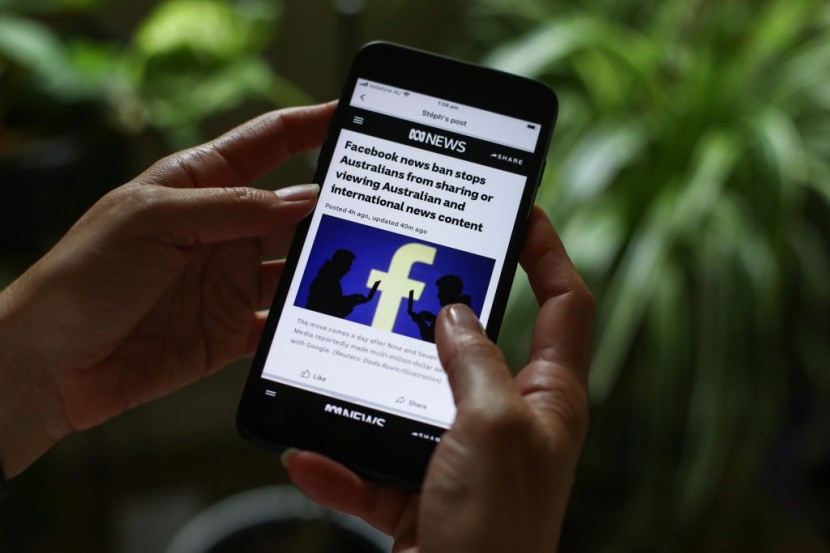
Facebook has begun blocking news organizations, users, and other organizations in Australia from sharing news and other links on the social media platform. The declaration comes as Australia is slated to make the new "media code" as its law. The law seeks to correct the bargaining imbalance between digital giants, including Facebook and Google and newsrooms.
Facebook's Response to Media Code
The Facebook pages of Australia's Queensland, ACT Health, South Australia, the Bureau of Meteorology, and the WA Fire and Emergency Services have been blocked after the social media giant barred Australians from sharing news. The pages were barred as the social media platform followed through on its threat to bar Australians from sharing news on its platform in response to the proposed media bargaining code. The pages, which provide important government, health, and weather information and alerts, were prohibited on Thursday, reported The Epoch Times.
The decision to yank news content from its Australian platform was watched by the world. The abrupt move sent shockwaves through the global publishing community. It prompted the United States' largest media industry body to tout it as "misguided." The News Media Alliance ensured its support for US legislation similar to that being introduced in Australia.
According to the alliance president and CEO David Chavern, "It is misguided for Facebook to restrict the sharing of high-quality journalism on its platform. It is well-established that in the absence of real news, misinformation, disinformation and hate speech flourish -- a problem Facebook is all too familiar with. Prioritizing news on its platform is a solution that would be mutually beneficial to both publishers and Facebook. Facebook's abrupt action will hurt its users and, ultimately, backfire," reported Financial Review.
Also Read : Australian MP Receives One Week Suspension After Facebook Deems His Posts as COVID-19 Misinformation
The social media giant also reportedly blocked its own official page briefly. Many non-profit pages, including the Kids Cancer Project, Council to Homeless Persons, and other major organizations like the Australian Council of Trade Unions, were also affected. Australian citizens were prohibited from accessing news in their Facebook feeds after a spiraling of the proposed media bargaining code. This would require Google and the company to negotiate commercial deals with news outlets whose links drive traffic to their websites.
According to Save the Children CEO Paul Ronalds, the charity had been dependent on the platform to communicate with members and supporters. "We also use Facebook as an important fundraising tool to reach generous supporters who want to support the world's most vulnerable children." He added every minute that their page is down is another minute that their message is not communicating about the needs of children," reported Reuters.
Although a number of the pages have now been reinstated, Facebook stated it would reverse pages "inadvertently impacted" by their sudden and dramatic move. Other charity groups, involving the 1800Respect for domestic violence and a series of health organizations working with Indigenous Australians also found their pages blocked on Thursday. Questions are posed in Australia regarding the reason they were pulled down by Facebook in the first place.








